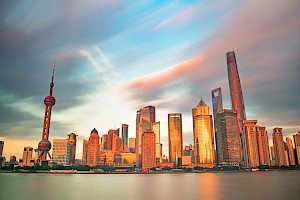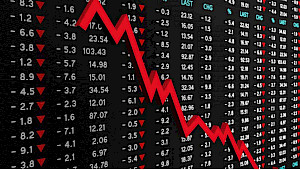World economies at war: How a shift to deglobalization will cost you in your wallet
September 20, 2023Originally published in The Toronto Star on September 12, 2023 as contributing columnist
“Globalization is a fact of life. But I believe we have underestimated its fragility.” - Kofi Annan, former UN Secretary General and Nobel Peace Prize winner
There has been a general consensus for at least the last 30 years that, whether we like it or not, we live in a globalized world and our national economies are ever more intertwined and interdependent.
But recent events have caused many to revisit this consensus and this time around the vitriol feels much nastier than when this was last a topic of regular discussion in the 1990s.
Globalization — the interdependence of world economies and the cross-border trade of goods and services, technology, investment, and information — has served as a rallying call for the anti-World Economic Forum (WEF) contingent and has provided fodder for populist politicians who can blame globalization as the root cause for many societal ills.
Corporations, which benefited the most from globalization, are increasingly concerned about supply chains and are delicately keeping leeward to the political winds of change. So it’s worthwhile to take a closer look at the benefits and drawbacks of globalization and the possible outcomes of the current deglobalization movement.
One of the most significant arguments against globalization is the loss of jobs in industrialized nations. When corporations outsource labour to foreign countries with cheaper labour costs, it can lead to an increase in unemployment rates at home. From 1988 to 2021, for instance, the U.S. lost more than five million manufacturing jobs as companies moved manufacturing facilities to countries with cheaper labour costs.
The term “rust belt” has become emblematic of the migration of manufacturing jobs to countries such as China and Mexico, which has had a devastating effect on communities throughout the American Midwest.
The demographic that took the greatest hit was the noncollege educated worker, which underscores the appeal of the anti-establishment MAGA movement. Another significant drawback of globalization is that trade imbalances can force industrialized nations to incur shortfalls in capital, which in turn leads to greater borrowing needs from foreign lenders. The U.S. is currently experiencing this firsthand, as it has a trade deficit with China and other countries.
With antiglobalization comes a rise in inflation
That said, most of the antiglobalization narrative neglects to address the benefits that three decades of globalization have given the world. First and foremost is much cheaper and a greater variety of goods. Merchandise trade as a share of global GDP grew from around 30 per cent in 1988 to around 50 per cent in 2013 and global varieties grew more than threefold over the 1972 to 2001 period.
Additionally, since the mid-nineties — when globalization began to rise markedly — inflation remained relatively low. Conversely, as the deglobalization movement began to take hold with its main features of higher tariffs and other trade barriers, core inflation moved from the two per cent level to an average annualized six per cent.
Globalization also benefited developing nations and helped make a big dent in global poverty levels. From 1988 to 2013 the global poverty head count ratio declined from 35 per cent to 10.7 per cent, and the income of the bottom 40 per cent of the world population increased by close to 50 per cent.
The world was already on the path toward deglobalization when Russia invaded Ukraine, which was largely driven by the deteriorating relations between China and the U.S. The sanctions imposed on Russia by the West gave China the opening to ratchet up its efforts to change the world order that the U.S. created after the Second World War. First by expanding the trade club known as BRICS. (Brazil, Russia, India, China, South Africa.) It recently added new members, Saudi Arabia, UAE, Iran, Argentina, Egypt, and Ethiopia. With the six new members joining its ranks, the expanded BRICS group will represent 46 per cent of global population, 29 per cent of global GDP, and 25 per cent of global exports. Proof of the attraction to being part of a large trading bloc that would challenge the muscle of the G7 is in the fact that there are currently 17 additional countries applying to join.
China’s influence over the Global South also gave rise to the de-dollarization movement. The move away from the U.S. dollar for trade and settlement purposes, the declining share of U.S. dollar reserves held by central banks, and the competition to the International Monetary Fund and World Bank posed by The New Development Bank will usher in a world of either a bifurcated or multiple trading blocs. From the perspective of BRICS and the Global South in general, the U.S. dollar has allowed the U.S. the privilege of exporting inflation to poorer countries.
Although the creation of a BRICS trading bloc doesn’t in itself mean the demise of globalization, America’s efforts to ring-fence China by building alliances with other countries and organizations will force China to retaliate. These tit-for-tat actions will contribute to a more cumbersome trading environment for the world at large. Closer to home, the combination of deglobalization and de-dollarization will have profound effects on western economies.
The most significant impact will be felt on the price of goods which is highly correlated to input costs (ie, commodities.) Credit Suisse economist Zoltan Pozsar’s excellent report, “War and Commodity Encumbrance” paints a not-so-rosy future for the west. Not only does he spell out the methods by which de-dollarization is playing out, but it also offers a peek into a world of the have and have-nots in the commodities that account for everything made in our modern society, from fossil fuels, to food, to metals. In other words, the stuff that the expanded BRICS have plenty of and with the exception of the U.S., the west lacks. Pozsar speculates that the west is not prepared for a world where the BRICS motto will be, “Our commodity, Your problem” and that economists haven’t worked geopolitical tensions into inflation calculations.
‘Everything is going to become more expensive’
In his book, “The World Ending is Just the Beginning”, Geopolitical strategist Peter Zeihan argues that we are heading toward a period of deglobalization, with ensuing chaos and disaster. “Going forward from 2022,” he writes, “everything is going to become more expensive and more difficult to obtain. America created this world of cheap and accessible goods, but now America has lost interest in keeping it going.”
Globe-spanning supply chains are only possible with the protection of the U.S. Navy. The U.S. dollar underpinned internationalized energy and financial markets. American security policy forced warring nations to lay down their arms. Billions of people were fed and educated as the American-led trade system spread across the globe. That was then. Zeihan maps out the next world: A world where countries or regions will have no choice but to make their own goods, grow their own food, secure their own energy, and fight their own battles. I found some of his assumptions and conclusions simplistic and overly cynical, but there is no doubt some of what he is predicting is certainly plausible.
If enough of what is being predicted about the effects of deglobalization comes to pass, it will negatively impact the standard of living in the Western economies for sure. But that’s not what worries me most. Cold Wars, which I fear we are entering, have often led to hot wars. During the interwar period in the 1930s there was a dramatic shift away from multilateral trade toward trade within empires or informal spheres of influence. Historians have argued that this shift exacerbated tensions between countries ahead of the Second World War.
The current trend of deglobalization is a complex issue with both benefits and drawbacks. One’s perspective on globalization may depend on whether one lives in Mexicali or Michigan, Beijing or Buffalo, Wall Street or Main Street.
It is true that the West may create more jobs, but the products you buy will be a lot more expensive. It will be a case of picking your poison. One can only hope that all this Cold War and protectionist rhetoric will not go too far or that it will prove to be overblown.
Perhaps it’s too late to put the genie back in the bottle and the world may be too interconnected and supply chains may prove impossible to break up. China, and America’s relationship with China, may prove too symbiotic for a full-scale divorce, as we can surmise by the current shuttle diplomacy by U.S. cabinet secretaries to China.
The undeniable truth is we are stuck with each other on this pale blue dot, so we best find some way to make it work.










